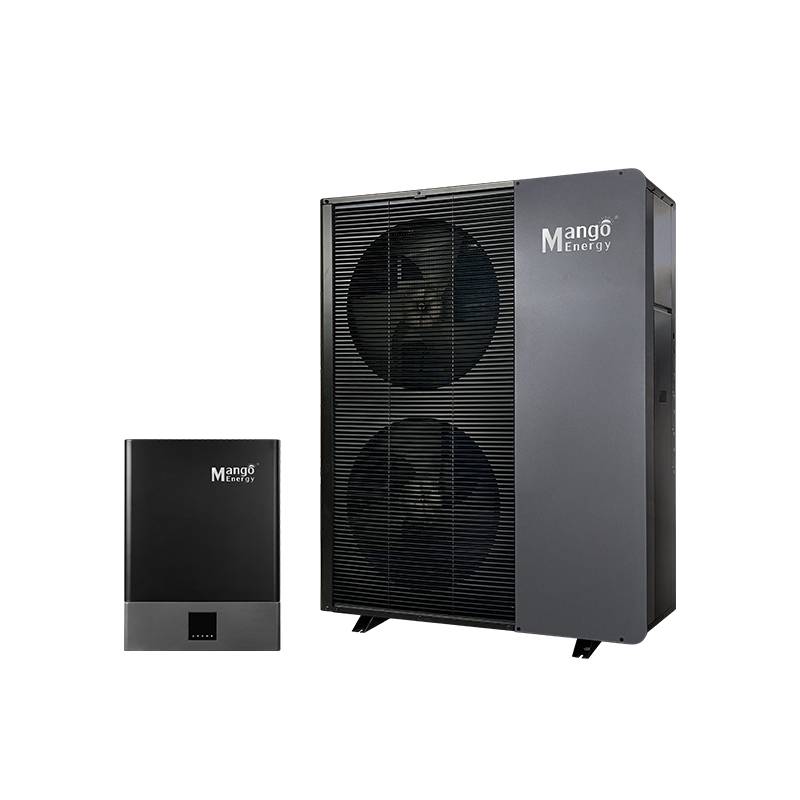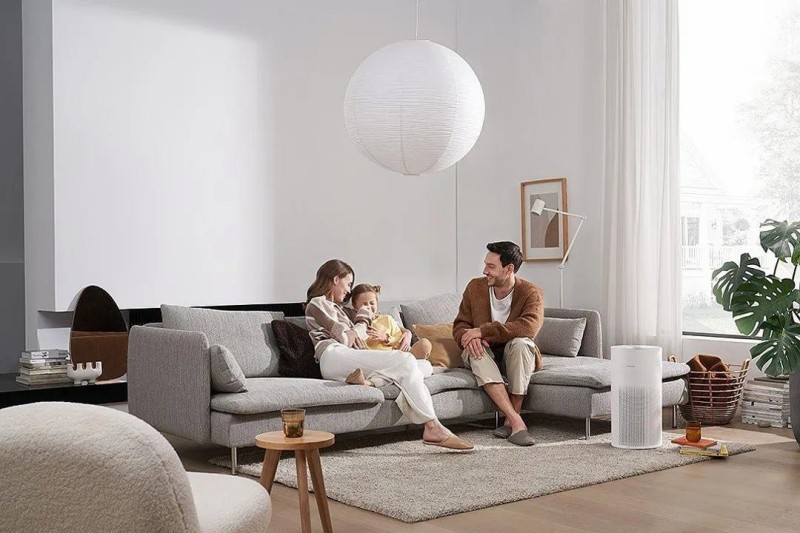
In today's era of energy conservation and environmental protection, air source heat pumps are gradually becoming popular with their advantages of being environmentally friendly, pollution-free, safe and energy-saving. There are many different brands of air source heat pump products on the market, which can be mainly divided into two categories: fixed-frequency air source heat pumps and variable-frequency air source heat pumps. So, what are the differences between the two? How to choose? Next, Mango energy will analyze it in detail for you.
Differences between fixed-frequency and variable-frequency air source heat pumps:
1. Differences in working principles
The fixed-frequency air source heat pump heats or cools by controlling the operation of the compressor. Because the power supply frequency cannot be changed, the speed of the fixed-frequency air source heat pump compressor will basically not change. When the temperature reaches the set temperature, the compressor stops working, otherwise it starts working, and the temperature is adjusted by constantly starting and stopping the compressor.
The variable-frequency air source heat pump is a variable-frequency compressor that uses variable-frequency control technology. It automatically selects heating, cooling and dehumidification operation modes according to the ambient temperature, so that the room can quickly reach the required temperature in a short time, and fluctuates with a small temperature difference under low speed and low energy consumption, achieving fast, energy-saving and comfortable temperature control effects.

2. Differences in performance at different temperatures
Usually, the lower the temperature, the more obvious the difference in heating efficiency between fixed-frequency and variable-frequency air source heat pumps. At 15℃~20℃, the heating capacity of variable-frequency air source heat pumps and fixed-frequency air source heat pumps differs by less than 10%; at -5℃, the heating capacity of variable-frequency air source heat pumps is about 60% higher than that of fixed-frequency air source heat pumps; at -15℃, the difference increases to 80%. Therefore, variable-frequency air source heat pumps are very suitable for heating and heating in areas with low ambient temperatures.

3. Differences in performance at different temperatures
During the operation of fixed-frequency air source heat pumps, no matter how large the host load is, the unit can only operate at one frequency. When the temperature reaches the set temperature, it will shut down, and when the temperature drops to the range, it will restart. In addition to consuming electricity, such frequent shutdowns and restarts will also affect the life of the compressor. The variable-frequency air source heat pump can automatically adjust the number of compressor revolutions according to changes in ambient temperature, and at the same time, it runs more stably without the feeling of sudden changes in temperature. Even if the temperature is reached, it will not shut down, but maintain operation with low energy consumption, which is conducive to extending the service life of the unit and reducing energy consumption.

4. Energy-saving difference
When the variable frequency air source heat pump system is started, the current is low, which will not impact the power grid and the electricity meter, and can reduce interference with other electrical appliances in use indoors. The voltage adaptation range reaches 120V~270V, which solves the problem of affecting work due to unstable voltage. The wider the frequency change range, the more it can ensure that it will not stop running in most working conditions, and the more obvious the energy-saving advantage. The fixed frequency air source heat pump needs to be frequently started and stopped to adjust the temperature, which is easy to cause damage to the compressor. Strong current input when starting, so it consumes electricity, while the variable frequency air source heat pump does not need to be started frequently. From this aspect, variable frequency is more energy-saving than fixed frequency.For heating, the load required by the building is constantly changing. For a fixed building and heating system, the change of heating load depends on the ambient temperature, indoor demand temperature and special conditions of user use at that time. For a fixed-frequency unit application system, usually 70% to 80% of the time, the unit's output is greater than the load required by the building, and 20% to 30% of the time, the unit's output is less than the load required by the building (at this time, the auxiliary heat source or standby unit needs to be started). During this 70% to 80% of the operating time, the fixed-frequency unit can only achieve load matching by repeated start and stop, otherwise the heat sent in is not needed by the user, which will cause greater waste.
Overall, in terms of heating and cooling stability, comfort and energy saving, variable frequency air source heat pumps are better than fixed frequency air source heat pumps. However, in terms of the purchase cost, the purchase cost of fixed frequency air source heat pumps is relatively low. As for which one to choose as your home heating artifact, it depends on the specific needs.


